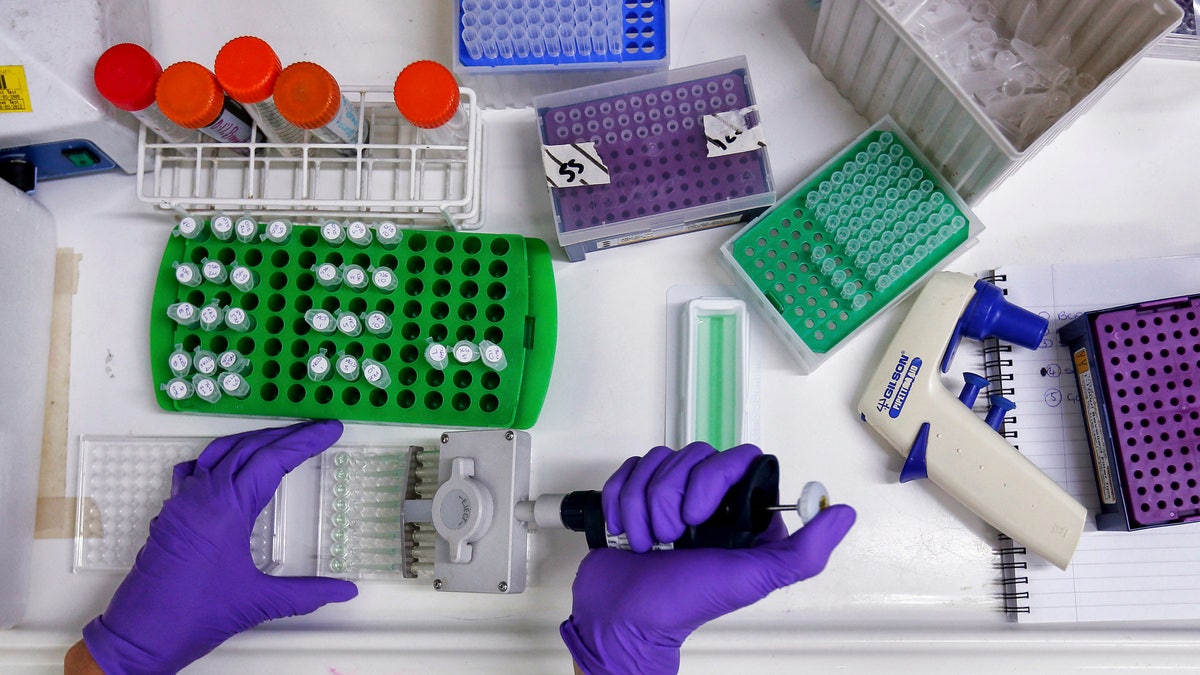
Scientist prepares protein samples for analysis in a lab at the Institute of Cancer Research in Sutton. (Reuters)
Internet technologies may help underserved populations participate in medical research studies, but relying on those technologies to get broader participation isn't likely to work, a new study suggests.
The study's lead author told Reuters Health it's important to get all groups of people represented in research, because medical recommendations are based on study results.
"Most of those are based on educated white people, and not on the full range of the American population," said Dr. Sarah Hartz, of the Washington University School of Medicine in St. Louis, Missouri.
She pointed out that people who participate in research studies need to check in with researchers during the course of the study. Internet technologies like smart phones may make it easier for people to join those projects.
To see how well internet-based approaches would engage participants from diverse racial and socioeconomic backgrounds, researchers recruited 967 people and offered them information about their ancestry from genetic testing.
Overall, 64 percent of participants told researchers they would be very or extremely interested in viewing their ancestry information. But only 16 percent accessed the information after receiving a couple of emails, a phone call and a letter.
The numbers were even lower among African Americans and people with low income and low education levels.
Among those who were interested in the results, 19 percent of people with a high school diploma accessed the results, as did 4 percent of those without a diploma.
Twenty-two percent of people living above the federal poverty level accessed the information, compared to 10 percent of those living below the poverty line.
Also, 45 percent of educated white participants living about the poverty line accessed the results, compared to 18 percent of their black counterparts.
While the researchers can't say why engagement differed between populations, Hartz said there could be underlying behavioral differences between groups.
For example, some people may not check their email as regularly as others do, she said.
"If you don't use email regularly, it doesn't matter if you have a smart phone," she said.
She said the next step in the research is to identify disparities and find how to fix those gaps.
The researchers write in the journal Genetics in Medicine that their results are limited by the fact that they defined "engagement" as the participants returning to access their ancestry data.
The results might have been different if engagement had been measured differently, such as on the basis of retention or satisfaction surveys, said Lorna McNeill, who is deputy chair for health disparities research at MD Anderson Cancer Center in Houston.
Also, McNeill said, results might have been different if the information people could access was more relevant to their lives, such as how to improve their own health.
"Technology is going to help us tremendously," said McNeil, who was not involved with the new study. "You need to combine it with other strategies of community engagement."
SOURCE: http://go.nature.com/2ayggWf Genetics in Medicine, online July 28, 2016.








































